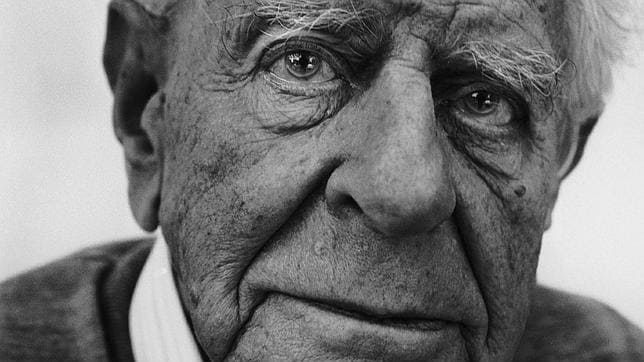Karl Popper, en 20 frases
Hace 20 años fallecía en Londres el filósofo austriaco, padre del racionalismo crítico.
En el 20 aniversario del fallecimiento del filósofo austriaco, rescatamos 20 de sus frases:
1. «No creo que hayan existido nunca sociedades mejores que las occidentales. ¡Por supuesto que no son perfectas! Pero están abiertas a las reformas, están incluso ávidas de reformas»
2. «Para una nación la libertad es más importante que la riqueza, y, en la vida política, esta es una condición indispensable para vivir al menos humanamente»
3. «El aumento del conocimiento depende por completo de la existencia del desacuerdo»
4. «No existe una historia de la humanidad, sólo hay muchas historias de todo tipo de aspectos de la vida humana»
5. «La mayoría nunca establece lo que está bien o mal, la mayoría también puede equivocarse. Las decisiones por la mayoría establecen una regla, pero si ésta no está de acuerdo con la libertad, entonces está equivocada»
6. «Aquello que nos promete el paraíso en la tierra nunca produjo nada, sino un infierno»
7. «En nombre de la tolerancia, tendríamos que reivindicar el derecho a no tolerar a los intolerantes»
8. «Es imposible hablar de tal manera que no se pueda ser mal interpretado»
9. «Tenemos que hacer planes para la libertad, y no sólo para la seguridad, por la única razón de que sólo la libertad puede hacer segura la seguridad»
10. «La razón no es todopoderosa, es una trabajadora tenaz, tanteadora, cauta, crítica, implacable, deseosa de escuchar y discutir, arriesgada»
11. «Hay que estar contra lo ya pensado, contra la tradición, de la que no se puede prescindir, pero en la que no se puede confiar»
12. «La verdadera ignorancia no es la ausencia de conocimientos, sino el hecho de negarse a adquirirlos»
13. «Sólo debemos sacrificarnos por los ideales»
14. «Quien sea incapaz de hablar claro debe callar hasta poder hacerlo»
16.«La ciencia es la única actividad humana en la que los errores son criticados y corregidos»
17.«No hay alternativa al darwinismo. Creo que hay selección, pero no siempre utilitaria en el sentido de la supervivencia»
18. «El mundo no está formado por cosas, sino por procesos»
19. «La toma de conciencia de que necesitamos la ayuda de otros conduce a la tolerancia basada en nuestra ignorancia: es el fundamento de la democracia»
20. «La sociedad abierta es una en la que los hombres han aprendido a ser hasta cierto punto críticos de los tabúes, y a basar las decisiones en la autoridad de su propia inteligencia.»
(DIARIO ABC).

